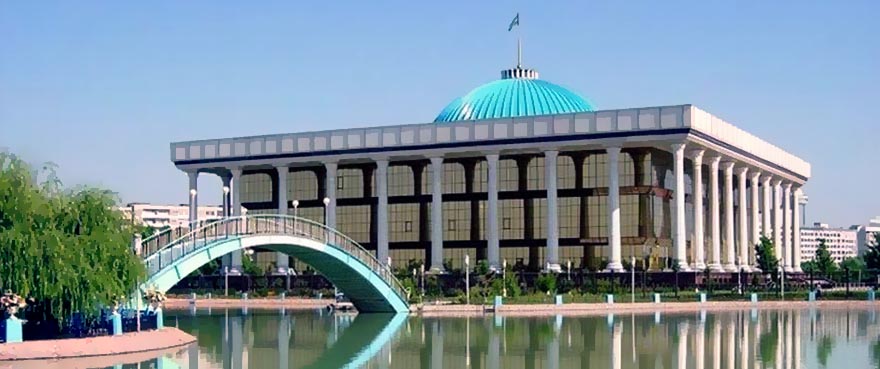State Structure

History
On August 31, 1991 Islam Karimov, then president of the Uzbek Soviet Socialist Republic, declared the national independence of the Republic of Uzbekistan. On December 29, 1991 Islam Karimov was elected the President of the Republic of Uzbekistan in the nationwide general elections. The constitution of the Republic of Uzbekistan was adopted on January 8, 1992 and is the main law of the country.
Government
Uzbekistan is a sovereign democratic republic. All citizens of Uzbekistan over age 18 have the right to vote. The state power system includes the legislative, executive, and judicial powers.
Legislative Powers
The Oliy Majlis—the parliament of the Republic of Uzbekistan, which performs the legislative activities—is the supreme state representative body. The Oliy Majlis consists of two chambers: the legislative chamber (lower house) and the Senate (upper house). The term of authority for elected officials to the Oliy Majlis is 5 years. The order of preparing and holding of elections for the Oliy Majlis is determined by the Law of the Republic of Uzbekistan and other legislative acts of the country, adopted in connection therewith.
Executive Powers
The Cabinet of Ministers is the body of executive power of the Republic of Uzbekistan that ensures the management of effective functioning of economic, social, and spiritual spheres; the performance of laws of the Republic of Uzbekistan; the resolutions of the Oliy Majlis; and the decrees, resolutions, and orders of the president of the Republic of Uzbekistan. The Cabinet of Ministers reports to the president and the Oliy Majlis. The Cabinet of Ministers has the right to initiate legislation.
Judicial Powers
Judicial power functions independently of legislative and executive powers, political parties, other public associations. The Republic of Uzbekistan's judicial system contains the following courts:
– Constitutional Court;
– Supreme Court;
– Supreme Economic Court;
– military courts; and
– Office of the Prosecutor General.


